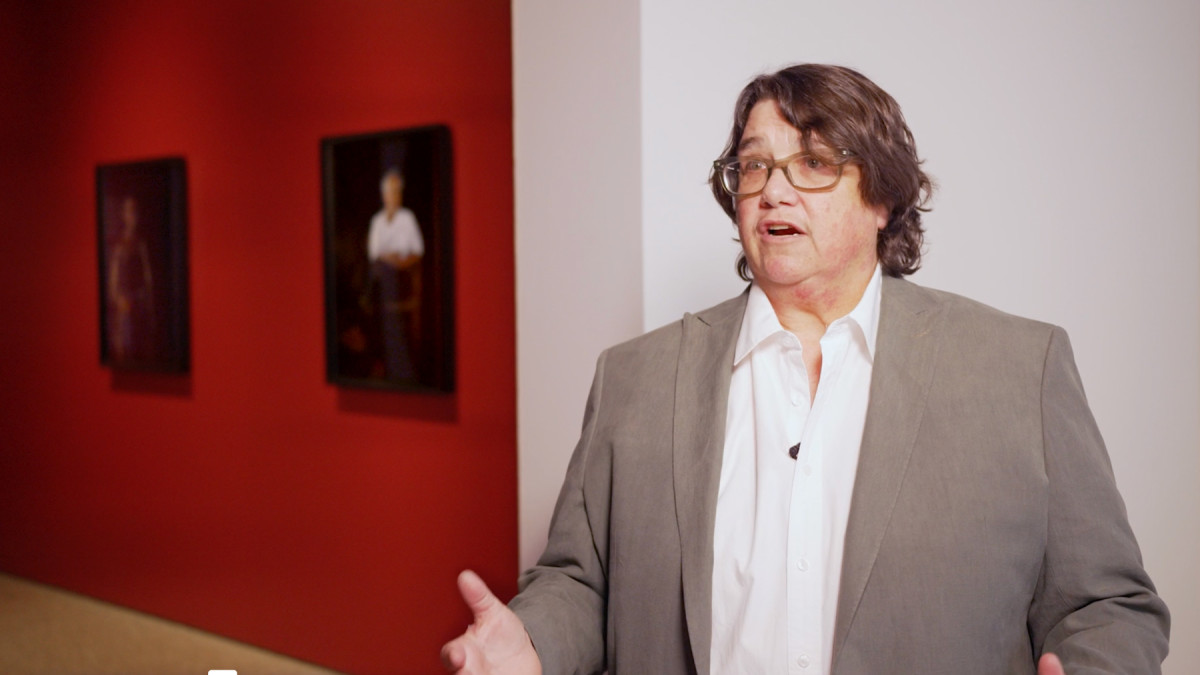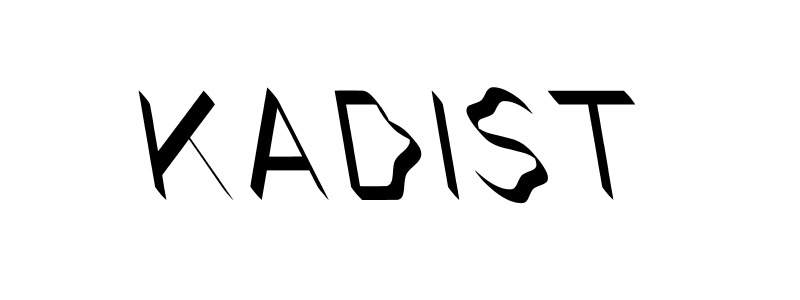Higher Horse
2008 - Film & Video (Film & Video)
6:13 minutes
Kate Gilmore
In the six-minute single-channel video Higher Horse , Kate Gilmore perches herself on top of a tall pile of plaster blocks, in front of a pink colored wall with vein-like streaks of red. Two muscular men with sledgehammers simultaneously pummel the blocks where Gilmore attempts to stand. Although we can only see the artist from the waist down, her body language reveals apprehension: her hands, tense, press against the wall in an attempt to maintain balance while the men come dangerously close to smashing her bare legs. Gilmore’s attire—red heels, a black skirt, and a pink top—together with the pink walls, are all symbolically charged as expressions of the female gender. The aggressive actions we see in Higher Horse are consistent with her investigation into the language of damage, destruction and rage, which in this case, is inflicted by the male body as she attempts to remain above, unharmed.
Whether through live or filmed performances, or sculptural works where we can see traces of actions, Kate Gilmore’s practice always departs from the female body. Through her own physicality, and often using the language of destruction and rage, she creates works that bring into question social constructs relating to sex, gender, and most specifically, femininity. Although early in her career she often placed herself as the central protagonist, over the past few years she has invited other women to perform her pieces, and in some instances has even relied on audiences to activate works. A common feature of her work is the use feminine signifers—high heels, skirts, floral patterns, and specific color hues—which are set in stark contrast with physically demanding actions that are aggressive in nature and would commonly be associated with a masculine ethos. By tearing dry walls with sledge hammers, bashing cubes of metal and plaster, smashing glass containers full of paint—Gilmore’s gestures embody a form of resistance seeking to break free from the norms that constrict femininity, all of this articulated through and from the female body.
Colors:
Related works featuring themes of: » Abstract Sculpture, » Feminism, » Cultural Commentary, » Endurance Art, » American

© » KADIST
Lynn Hershman Leeson
2016Tania Libre is a film by Lynn Hershman Leeson centered around renowned artist Tania Bruguera and her experience as a political artist and activist under the repressive government of her native Cuba...

© » KADIST
Pak Sheung Chuen
2017The series Nightmare Wallpapers represents a shift if Chuen’s practice, allowing the artist to immerse himself in an “artistic pilgrimage of self healing” following the failure of the 2014 Umbrella Movement...

© » KADIST
Mike Kelley
1996Towhead n’Ganga, enclosed in darkness, lorded over by the sexualized folded high priestless form reflects many of Kelley’s works, in both its compositional and semantic qualities...

© » KADIST
John McCracken
Though not strictly representational, some objects in Untitled (1962) are recognizable: a flower, an egg, a foot...

© » KADIST
Will Rogan
2014Will Rogan’s video Eraser (2014) shows a hearse parked in a clearing amidst leaf barren trees...

© » KADIST
Aaron Young
2007The artist describes the work as “very performative video-pieces but they take on a more sculptural feel...

© » ROYAL ACADEMY
Catherine Opie
Video: Catherine Opie on photographing leading British artists | Blog | Royal Academy of Arts Catherine Opie in the RA Collection Gallery Video: Catherine Opie on photographing leading British artists Read more Become a Friend Video: Catherine Opie on photographing leading British artists Published 8 September 2023 Catherine Opie discusses her portraits of David Hockney, Anish Kapoor, Gillian Wearing, Isaac Julien and Lynette Yiadom-Boakye, featured in our free display in the Collection Gallery...

© » KADIST
Catherine Opie
1994Although best known as a provocateur and portraitist, Opie also photographs landscapes, cityscapes, and architecture...

© » KADIST
Agnieszka Kurant
2022For Sentimentite Agnieszka Kurant collaborated with Justin Lane, CEO and Co-Founder of CulturePulse, to gather global sentiment data that has been harvested from millions of Twitter and Reddit posts related to 100 seismic events in recent history...

© » KADIST
Lynn Hershman Leeson
2017Using the seminal 1958 film Vertigo as a launchpad, Lynn Hershman Leeson explores the blurred lines between fact and fantasy in VertiGhost , a film commissioned by the Fine Arts Museums in San Francisco...

© » KADIST
Agnieszka Kurant
2022For Sentimentite Agnieszka Kurant collaborated with Justin Lane, CEO and Co-Founder of CulturePulse, to gather global sentiment data that has been harvested from millions of Twitter and Reddit posts related to 100 seismic events in recent history...

© » KADIST
Pak Sheung Chuen
2008Pak created New York Public Library Projects (NYPLP) (2008) during a residency in New York, using public libraries as exhibition spaces and the books they house as raw materials...

© » KADIST
Walead Beshty
2012Constructed out of metal or glass to mirror the size of FedEx shipping boxes, and to fit securely inside, Walead Beshty’s FedEx works are then shipped, accruing cracks, chips, scrapes, and bruises along the way to their destination...

© » KADIST
Zanele Muholi
2014As a visual activist for the rights of Lesbian, gay, bisexual, transgender, queer and intersex (LBGTQI), Muholi’s photographs radically transgress the conventional perception of lesbian and transgender communities in South Africa...






